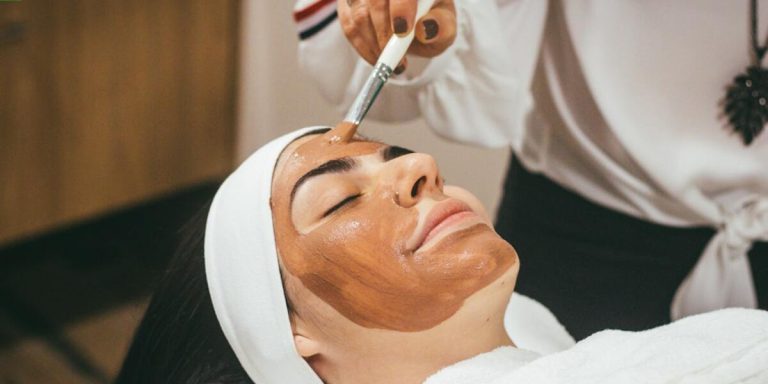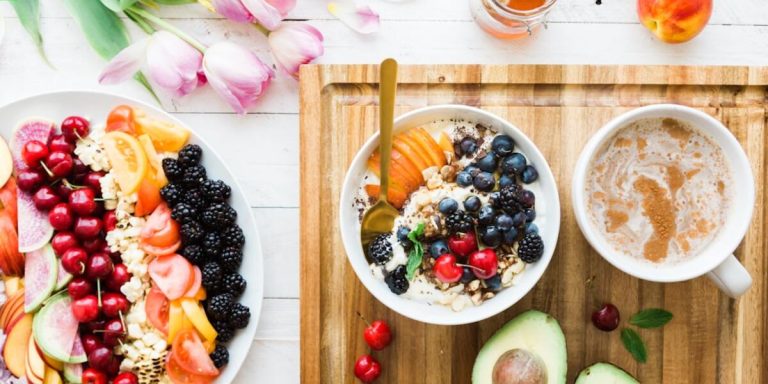Prenatal Vitamins vs Biotin for Hair Growth: A Comparative Analysis
People often consider various options in their quest for healthier, lusher hair. They frequently compare “prenatal vitamins vs biotin for hair growth”. Both nutrients boast beneficial impacts on tresses, but determining which one is more effective can be confusing.
Different schools of thought explain the significant divergence. Some argue that prenatal vitamins, with their comprehensive formulas, promote better overall health and indirectly enhance hair quality. Others advocate for biotin as a dedicated substance known specifically for strengthening keratin, essential for healthy hair. This blog post offers a comparative analysis of these two powerful agents in the context of ‘hair growth vitamins‘.
Did you know?
Little known fact: While prenatal vitamins are often hailed as a solution for hair growth, there’s no scientific evidence to prove this claim. On the contrary, biotin has research-backed results in improving hair thickness and strength when used consistently over time.
Understanding the Roles of Prenatal Vitamins in Hair Growth
Pregnant women often take prenatal vitamins for the health of their growing babies, but these vitamins also surprisingly promote hair growth. These vitamins are packed with vital nutrients such as folic acid and iron, essential for healthy cell production including the cells that produce hair. They help your body generate strong, robust tresses. B-vitamins in these supplements support this process by helping to convert food into energy more efficiently.
Prenatal vitamins are not solely for hair growth; they offer this beneficial side effect because of their nutritional richness. Their main purpose is to nurture the mother and fetus’s health during pregnancy, not specifically to enhance cosmetic outcomes like lustrous locks or radiant skin.
Comparing this against biotin makes it even more interesting – another star player known for promoting hair thickening and rejuvenating effects when used properly within dietary limits. Biotin, part of the Vitamin B family (B7), has long been praised in beauty circles because few substances can rival its potential in stimulating keratin infrastructure—the natural protein base forming nails, skin, and hair.
Despite their benefits, remember that each person’s body responds differently based on various factors. So always consult your healthcare provider before adding any new supplements to your routine.
The Nutritional Profile of Prenatal Vitamins and Their Effects on Hair Follicles
Prenatal vitamins are packed with hair-boosting nutrients, offers a notable role in enhancing the health of your tresses. An interesting aspect is their comparison to biotin – an ingredient commonly related to hair growth.
Pregnancy triggers increased hormonal activity that usually leads to fuller and lusher locks. The secret behind this? Prenatal vitamins, designed specifically for pregnant women’s unique nutritional requirements but also offer benefits outside pregnancy including promoting better hair health.
The key contents of prenatal nutrition include essential elements such as Folic Acid (vitamin B9), Iron, Vitamin D3, Omega-3 fatty acids amongst others which assure overall optimal bodily functions along with appealing aesthetics of skin and hair.
Folic acid aids rapid cell division thus accelerating the growth rate of hairs while iron ensures good oxygen supply towards follicles resulting in stronger roots.
Vitamin D3 creates new follicles—small pores where new hair can grow, thereby improving scalp capacity. Meanwhile, omega-3 acids perform the following functions:
- Nourish newly grown hair strands, keeping them soft and glossy
- Provide anti-inflammatory effects beneficial for a healthy scalp
In contrast stands our other contender – Biotin or vitamin B7 typically associated with enhanced keratin infrastructure; a protein constituting majorly upon human mane construction.
Comparing the Efficacy of Prenatal Supplements to Promote Hair Health
When discussing hair health and growth, two supplements often come up: prenatal vitamins and biotin. Let’s dive right in to analyze their efficacy.
Expectant mothers often take prenatal vitamins for optimal fetal development. However, these vitamins have also become popular for their benefits on skin, nails, and hair. Prenatal vitamins include several vital nutrients that promote healthy cell division, which is crucial for hair growth. These nutrients include:
- Folic acid
- Iron
- Vitamin D
- Vitamin E
- Thiamine (B1)
- Riboflavin (B2)
- Niacin (B3)
But the effectiveness is thought not solely because this complex blend nourishes your body overall but also as many individuals might fall short of recommended daily intake for these nutrients normally; hence noticeable improvements after starting them especially if there were deficiencies before.
Where it gets interesting is when we go head-to-head comparing both: prenatals vs biotin explicitly for promoting healthier locks!
Several studies suggest merely having adequate levels suffices rather than always needing more implying excessive amounts won’t necessarily equate increased rate or thickness.
Biotin as a Key Nutrient for Enhancing Hair Strength and Length
Biotin plays a crucial role in maintaining and improving hair health, strength, shine, and length. You can find this B-complex vitamin in natural sources like:
- Egg yolks
- Nuts
- Whole grains
External factors might hinder our body’s ability to absorb enough biotin from food. Thus, taking biotin-rich vitamins designed for hair growth can be an effective approach.
Taking ‘hair growth vitamins’ like biotin regularly offers numerous benefits for your hair:
- Reduces hair loss by strengthening keratin, the protein that forms each hair strand
- Strengthens roots
- Decreases breakage or shedding
Contrasting these benefits with prenatal vitamins’ offers interesting insights into their respective impacts on promoting healthy hair. Prenatal multivitamins pack essential nutrients needed during pregnancy but have also gained popularity for allegedly boosting hair volume. They contain high levels of folate, iron, and DHA, which contribute to their beneficial effects.
Analyzing How Biotin Works to Improve Keratin Infrastructure in Hair
Biotin, also known as vitamin B7 or H, plays a crucial role in improving the keratin infrastructure of hair. Keratin is an essential protein that makes up our skin, nails and especially our hair. Regular intake of biotin-rich food items can foster strong growth patterns for your locks.
Prenatal vitamins aid in healthier hair primarily because of their iron and folic acid content, but biotin has the most direct impact on one’s hair. Dedicated biotin supplements usually contain higher levels of this nutrient than prenatal vitamins, which is why people often see more pronounced effects with consistent use of biotin supplements.
Let us delve into understanding how exactly does biotin push for better structure:
1) Boosts Keratin Production: By being part vital cellular processes involved synthesizing amino acids – building blocks proteins including keratin; adequate presence ensures steady output these components.
Assessing Daily Biotin Requirements for Optimal Hair Growth Results
Sustaining optimal amounts of biotin intake can be achieved through diet or supplementation. Foods like eggs, almonds, cauliflower, cheese are naturally rich sources of this vitamin while supplements pack higher doses suitable to counter deficiencies.
Hair follicles primarily consist of proteins like keratin. Biotin helps produce the necessary enzymes for protein formation, playing a key role in maintaining healthy hair follicles and ensuring proper growth cycles. This continuous support leads to improved fullness and health of the hair.
People often compare prenatal vitamins and biotin, focusing on their effects on hair health. Prenatal vitamins provide a range of nutrients such as folic acid, iron, and calcium. Biotin contributes specifically to hair health by:
- Boosting hair thickness
- Preventing breakage
- Possibly speeding up growth rate over time
Those aiming to enhance their hair condition might choose a dedicated biotin supplement rather than a multi-nutrient product like prenatal vitamins.
Nevertheless, consult with a healthcare provider before choosing prenatal vitamins or biotin to:
- Assess your individual nutritional needs
- Avoid potential allergic reactions
- Prevent unwanted side effects from excessive doses
Evaluating Prenatal Vitamins Versus Biotin Supplementation
Prenatal vitamins and biotin supplements stand out for promoting hair growth in the hair care realm. Prenatal vitamins boast nutrient-rich profiles that bolster bodily functions such as skin, nail, and hair health. They come loaded with essential nutrients like:
- Folic acid (a form of vitamin B)
- Iron
- Omega-3 fatty acids
These nutrients work synergistically to foster strong and healthy hair.
Biotin supplementation has gained popularity because it directly increases hair strength and volume. Known as Vitamin H or B7, this water-soluble Vitamin B family member often receives recommendations for its focus on enhancing keratin infrastructure. Since keratin is the essential protein in hair, biotin helps improve retention capacity, resulting in less fallout and promoting longer, more voluminous strands.
Choose between Prenatal Vitamins and Biotin Supplementation based on your needs:
- If you need a broad-range nutritional supplement for whole-body wellness, consider prenatal vitamins.
- Choose Biotin if you maintain a balanced diet yet still experience hair breakage or thinness.
Note that both solutions may take time to show changes—patience is crucial!
Factors Influencing the Choice Between Prenatal Vitamins and Biotin for Individual Needs
Firstly, both these supplements have proven beneficial properties that can support healthier and faster-growing locks.
Biotin, a B-vitamin, promotes healthy skin, nails, and robust hair growth. Studies link biotin deficiency to alopecia, which causes spots of baldness. Although the scientific community commonly views biotin as a solution for strengthening strands and encouraging new follicle generation, concrete evidence remains inconsistent.
Many hairstylists recommend prenatal vitamins because pregnant women often have rapid hair growth, which they attribute to these multivitamins. Consequently, some non-pregnant individuals pursuing luxurious locks take them as well. However, remember that prenatal vitamins aren’t formulated specifically for hair growth unlike the ‘biotinylated‘ capsules designed for those battling thinning hair, despite anecdotal evidence suggesting improved hair health.
However, what differentiates your choice among them?
Scientific Evidence: Studies Measuring Impact on Hair Growth Rates
Scientific research has always played a paramount role in helping us understand the effects of certain substances on our bodies. When it comes to hair growth, various studies have measured and compared the impact of prenatal vitamins and biotin supplementation.
On the other hand, Biotin or Vitamin B7 is renowned for its potential advantages regarding skin and nail health; however, its ability to enhance hair growth remains quite contentious even today due to lack of consistent scientific corroboration.
One study conducted by Trüeb RM (2016) found that individuals with uncombable hair syndrome experienced significant improvement after high-dose biotin supplementation – this gives credence that under specific circumstances or deficiencies, increased dosage can make a difference.
Conclusion
Both prenatal vitamins and biotin play vital roles in hair growth. Prenatal vitamins target overall health and wellness, indirectly aiding in better hair growth. Biotin directly provides strength and vitality to your locks.
Don’t stop your journey to healthier tresses here! There is an ocean of information awaiting you right at your fingertips on our website. Explore more about ‘Hair Growth Vitamins’ and discover tailored solutions just for you because when it comes to beauty routines – knowledge truly is power!







